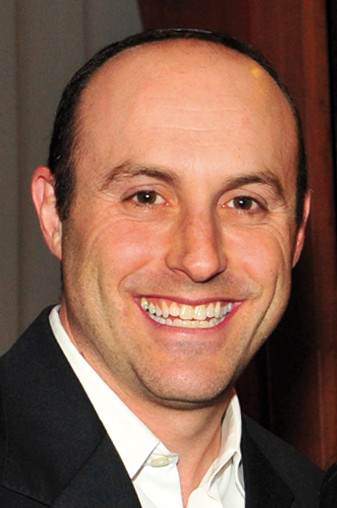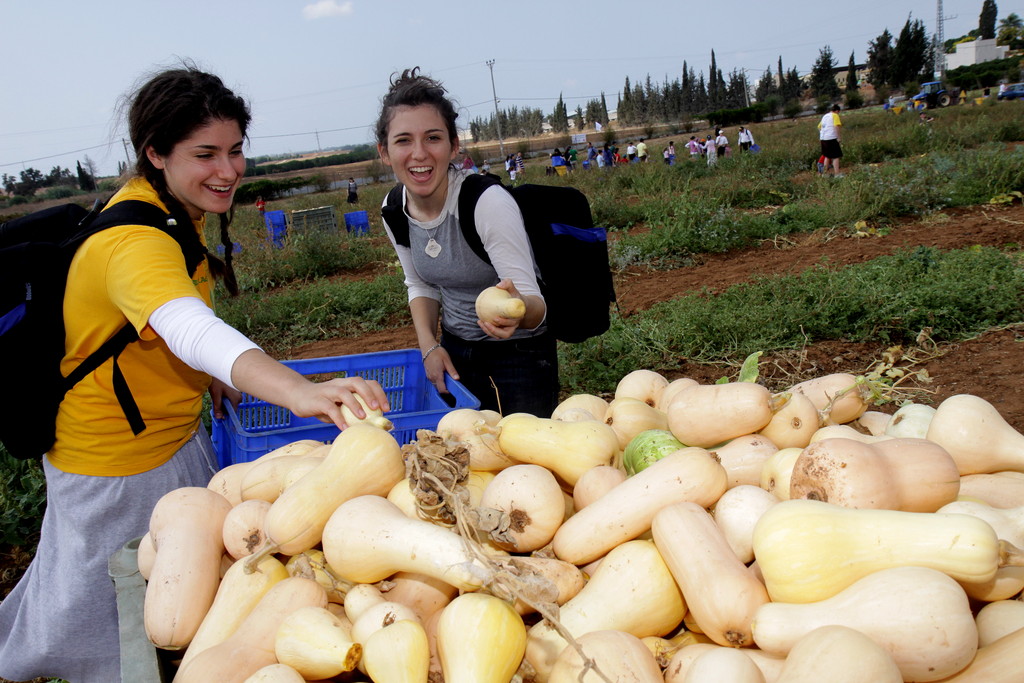Leket Israel: closing the gap between waste and want
Just days after the holiday of Shavuot and the reading of Megilat Ruth with its emphasis on chesed (kindness) and the agricultural mitzvah of leaving peah, leket and shikcha for the needy in the fields of Israel, another reality of the agricultural tie of need and charity comes to the Five Towns from Israel this weekend.
Joseph Gitler, Founder and Chairman of Leket Israel, the country’s largest food bank and food rescue network, will be speaking this Shabbat at Beth Sholom and Young Israel of Lawrence Cedarhurst to raise awareness and funds for an organization that works to close the gap between waste and want.
“I had a sense of a lot of people knocking on my door asking for tzedaka (charity) and news reports of people in need,” said Gitler, recalling the impetus for the organization in a phone interview from Israel. “And seeing the other half, so much waste in restaurants, so much waste and so much poverty. I started calling catering firms and asked if they had food that wasn’t being used and if they would be willing to donate if I would be willing to gather it. They said ‘come down!’ That’s the whole story of Leket Israel. If you have a resource that you are not going to utilize, let it go to the poor.”
Gitler grew up in Washington Heights. Twenty years ago, his parents moved to Teaneck. He attended Moriah in Englewood, MTA, and graduated from Yeshiva University in 1996. He studied law in Fordham and after a “brief legal career in New York” made Aliyah with his wife and daughter in 2000. He and his wife currently live in Raanana with their five children.
Leket Israel began with one man’s efforts in 2003 and has grown to a massive organization with a staff of 90 employees principally in logistics—truck drivers, warehouses, professional pickers in the fields. The strength of Leket, said Gitler, is its professional, highly motivated staff and its base of 40,000 volunteers. They own ten refrigerator trucks and rent 10,000 square feet of warehouse space and collect and distribute food from Metulla to Eilat. Collection ranges from crops in the field, food in restaurants, catering halls, manufacturers, army bases, corporate cafeterias, synagogues, shopping malls, and hotels.
“There are constantly changing sources,” he said. “A lot of companies learn to do business better so there is less waste. It’s good on the one hand but difficult on the other hand. The organizations we feed are relying on the food we collect.”
Some of the organizations they distribute to include Ezer Mizion, Yad Ezra VShulamit and Meir Panim. “The primary focus is on smaller organizations that people in the U.S. haven’t heard of but are doing great work. Our food makes a huge difference to them in terms of the budget,” said Gitler. They also distribute to homeless shelters, soup kitchens, meals on wheels, battered women programs, and Holocaust survivors. “It runs the gamut,” he pointed out. “There is a lot of waste and a lot of organizations feeding the poor, primarily collecting funds to purchase food.”
He pointed out that although 10% of their budget is overhead he noted that that is “without taking into account the value of the food. If you add the cash value of the food collected then the overhead is under 1%.”
He compares Leket Israel to City Harvest, emphasizing that it is an umbrella organization and a food bank. “A typical Tomchei Shabbat would be a client of ours. We serve dozens of Tomchei Shabbat organizations all around Israel.”
Gitler stressed that they do “a lot of work finding out about the organizations they distribute to” devoting time and staff to “trying to get to know the organizations and get comfortable with them” to know that they are “honest. It’s not a perfect science; we do our best.” He said most of the poverty is in the large urban areas. “We don’t always help every organization but we try.”
Volunteers are one time volunteers, army groups, Birthright, hi tech, family missions, federation missions, and bar and bat mitzvah trips. Volunteer activities include picking produce from fields, collecting food from restaurants and bakeries and other sources, making sandwiches for poor children, and preparing and delivering food packages.
He recounted two food collections that illustrate what Leket Israel does. “Over the summer we had a call from a kibbutz in the south that had over three million potatoes with a peel that didn’t fully develop; it was not as thick as normal. It meant that there was no market for the potatoes; no supermarket chain would take them. We spent $18,000 and brought up $300,000 wholesale worth of potatoes; we harvested them and spent donor dollars. Retail these potatoes are worth $1 million. That’s what we try to accomplish—distribution. Potatoes last a long time and every organization wants potatoes. It’s not a hard thing to give out. It’s what we’re about.”
He pointed out another “wonderful opportunity in the Dead Sea. We enlisted Egged bus drivers to pick up leftovers from hotels in the Dead Sea area. You can see the hotel employees coming out as the bus goes by. They come with trays of food. We put them in insulated containers in the luggage part under the buses.”
“Leket is unquestionably the most effective and comprehensive way to provide food for needy Israelis, regardless of their background,” said Rabbi Kenneth Hain, Rav of Congregation Beth Sholom of Lawrence. “I am a huge Leket fan. On my last trip to Israel, I even harvested beets for Leket.”
Leket Israel has some supporters in the Five Towns area, noted Gitler, specifically YILC. His talk this weekend, he said, “is a way of introducing us to the communities, for fundraising, developing new contacts and hope for more volunteers when they come to Israel.”
The goals of the organization are “ultimately that Israel’s economy continues to grow and give people better wages and get out of poverty,” he said. But meanwhile, “trying to have an organization for food charities, a one-stop shop for food needs. We would love to shut down, but it’s not that realistic, unfortunately.”
For more information go to: Elena@leket.us or info@leket.org. In the U.S.A. call 201 331-0070. In Israel call 09-744-1757.

 53.0°,
Mostly Cloudy
53.0°,
Mostly Cloudy 







